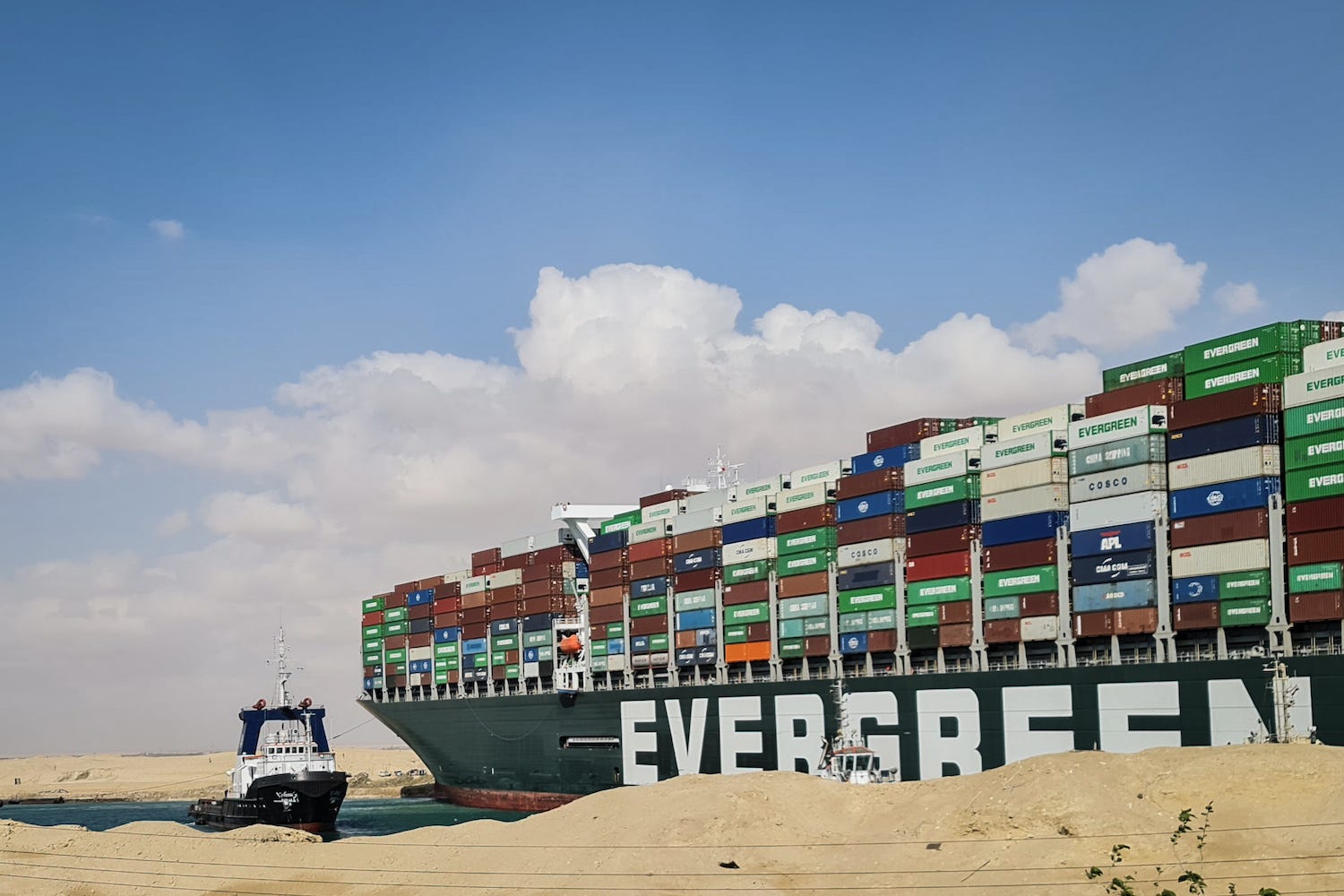
Photo by Samuel Mohsen/picture alliance via Getty Images
- The Suez Canal blockage has caused delays in goods shipping that could take months to resolve, Maersk said Monday.
- Maersk is the world's largest shipping company.
- Even when the Ever Given ship clears the canal, "the ripple effects on global capacity and equipment are significant," it said.
- See more stories on Insider's business page.
The Suez Canal blockage by the giant container ship Ever Given has caused shipping backlogs that could take months to unravel, Maersk, the world's biggest shipping company, said Monday.
"Even when the canal gets reopened, the ripple effects on global capacity and equipment are significant and the blockage has already triggered a series of further disruptions and backlogs in global shipping that could take weeks, possibly months, to unravel," Maersk said in a statement on Monday.
The container ship was "partially refloated" Sunday, the first step towards freeing the ship and reopening the canal for other cargo vessels, Bloomberg News first reported.
Toilet paper, coffee, and furniture are just some of the items that could be in short supply due to the 224,000-ton freighter getting wedged in the canal on March 24. IKEA has over 100 containers on the ship, which could also cause constraints in its supply chain.
Maersk, which carries goods for H&M, Nike, and Unilever, among others, said in its statement Monday it had three ships stuck in the Suez Canal and 29 ships waiting to enter the canal. It has already redirected 15 ships around the southern tip of South Africa, which adds about 10 days to their journeys.
Maersk told Insider that it was "still too early to indicate the total business impact of the six days blockage," but that the company was "working around the clock to mitigate the delays."
Soren Skou, CEO of Maersk, told the Financial Times on Monday that the Suez Canal jam, as well as the coronavirus pandemic, had forced companies to rethink their supply chains.
Skou said businesses previously depended on "just-in-time" supply chains, whereby items were transported to factories only as they were needed for manufacturing. This required firms to predict demand.
Now, companies are turning towards "just-in-case" supply chains, Skou said. This means they are holding more material to avoid shortages when disruptions occur, he added.
"We are moving towards a just-in-case supply chain, not just-in-time. This incident [in the Suez Canal] will make people think more about their supply chains," Skou told the FT.
"How much just-in-time do you want to be? It's great when it works but when it doesn't, you lose sales. There's no just-in-time cost savings that can outweigh the negative of losing sales," Skou said.
He also said that companies were becoming less dependent on single suppliers which might save them "the last 5 cents on a component."
"We clearly see our customers saying we need to have multiple suppliers to make sure that one small sub-supplier can't close us down," Skou said.
